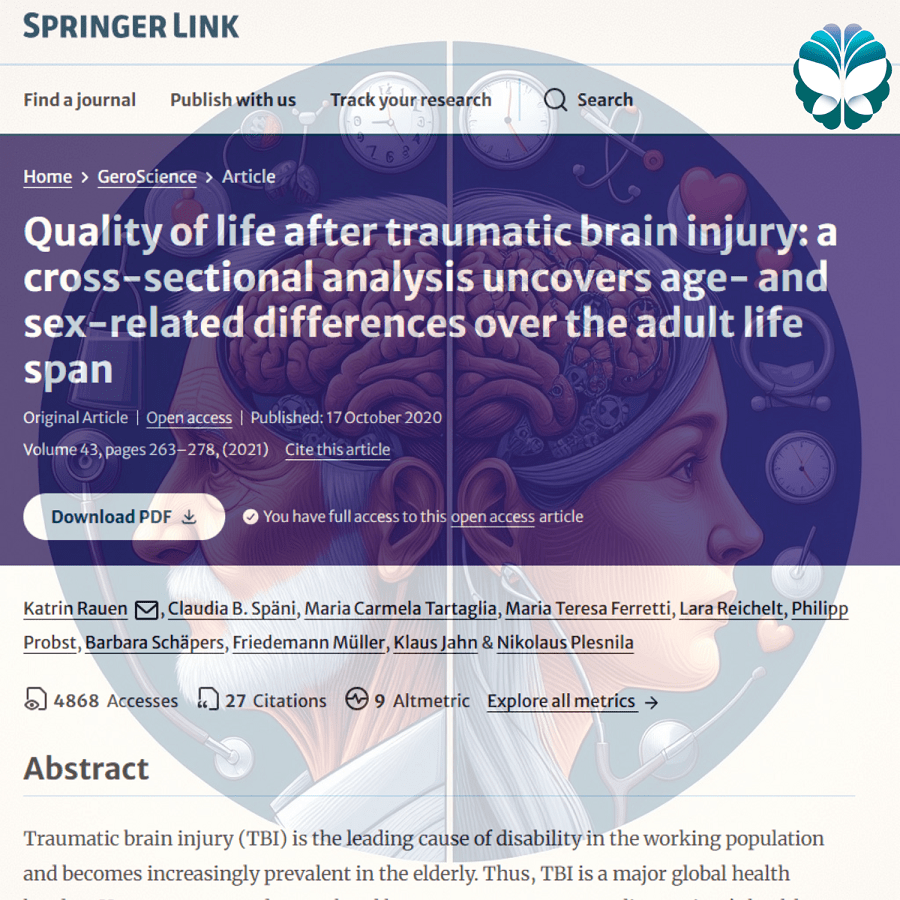Quality of life after traumatic brain injury: a cross-sectional analysis uncovers age- and sex-related differences over the adult lifespan
Post Written By: Benedetta Romeo | Affiliated Scientists & Researchers
Traumatic brain injury (TBI) is a major global health issue with a male-to-female ratio of up to 3-4:1. However, the long-term impacts on quality of life after TBI differ between sexes.
In this cross-sectional study, “Quality of life after traumatic brain injury: a cross-sectional analysis uncovers age- and sex-related differences over the adult lifespan,” we explored how TBI affects health-related quality of life (HRQoL) up to 10 years post-injury.
Key findings include:
- Most chronic TBI patients of both sexes report good HRQoL up to 10 years after their brain impact. However, 17% more females than males report moderate HRQoL with an increased risk of a psychiatric disorder during the chronic stage of TBI
- Older females having experienced TBI in their fifth to seventh decade of life report moderate, while males constantly report good HRQoL up to 10 years after the brain impact
- Cognition, self-perception, and emotions rather than physical problems are the decisive factors that particularly reduce older females’ HRQoL
- These findings suggest the need for further research into why the female brain appears more vulnerable to the long-term effects of TBI, particularly during aging
Check our publication here: Quality of life after traumatic brain injury: a cross-sectional analysis uncovers age- and sex-related differences over the adult life span | GeroScience (springer.com)
Thanks to all the great people who made this work possible!
Katrin Rauen, Claudia B. Späni, Maria Carmela Tartaglia, Maria Teresa Ferretti, Lara Reichelt, Philipp Probst, Barbara Schäpers, Friedemann Müller, Klaus Jahn, and Nikolaus Plesnila




